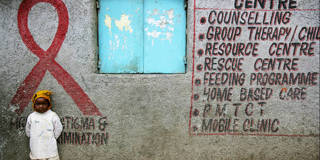New research has raised expectations that an effective HIV vaccine is on the horizon. But it has also heightened concerns that so-called rebound effects – like the re-emergence of practices that expose people to HIV infection – will pose new challenges in the decades-long struggle to eliminate the virus.
BRIGHTON – When I began my career as an HIV activist in Botswana two decades ago, the thought of a vaccine seemed fanciful. Even after the country hosted vaccine trials in the mid-2000s, many of us on the frontlines of the fight against HIV doubted that such a breakthrough would ever happen.
But this month, research published in The Lancet upended our pessimism. Clinical trials involving 393 people in East Africa, South Africa, Thailand, and the United States have yielded encouraging immunogenic responses and a “favorable safety and tolerability” profile. While these findings are preliminary and the sample size small, it is nonetheless exciting to imagine that the world may be on the verge of a viable vaccine. To take advantage of the benefits, we must begin preparing for its arrival now.
These are challenging times in the global effort to end HIV. Though health-care workers have focused on containing the epidemic for nearly four decades, infection rates remain stubbornly high. In 2017, there were 1.8 million new cases, and some 15.2 million people were unable to access HIV treatment. In West and Central Africa, only 2.1 million of the 6.1 million people living with HIV were receiving antiretroviral therapy.

BRIGHTON – When I began my career as an HIV activist in Botswana two decades ago, the thought of a vaccine seemed fanciful. Even after the country hosted vaccine trials in the mid-2000s, many of us on the frontlines of the fight against HIV doubted that such a breakthrough would ever happen.
But this month, research published in The Lancet upended our pessimism. Clinical trials involving 393 people in East Africa, South Africa, Thailand, and the United States have yielded encouraging immunogenic responses and a “favorable safety and tolerability” profile. While these findings are preliminary and the sample size small, it is nonetheless exciting to imagine that the world may be on the verge of a viable vaccine. To take advantage of the benefits, we must begin preparing for its arrival now.
These are challenging times in the global effort to end HIV. Though health-care workers have focused on containing the epidemic for nearly four decades, infection rates remain stubbornly high. In 2017, there were 1.8 million new cases, and some 15.2 million people were unable to access HIV treatment. In West and Central Africa, only 2.1 million of the 6.1 million people living with HIV were receiving antiretroviral therapy.